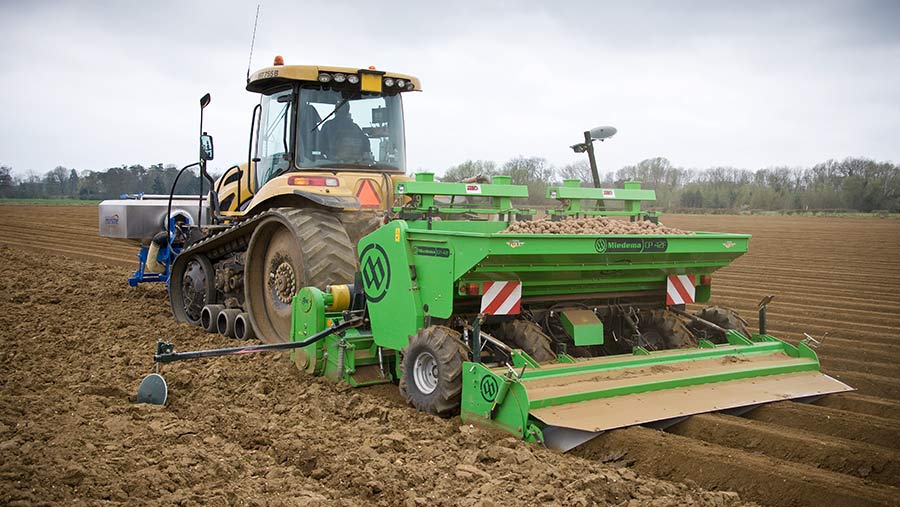Coronavirus lockdown complicates potato planting decisions
 © Tim Scrivener
© Tim Scrivener Potato planting decisions are being complicated by uncertainty over the length of the coronavirus lockdown and an overhang of processing material since restaurants, canteens and other food service outlets were shut down.
Free-buy trade has quietened and retail demand appears to have reduced slightly, with supermarkets and packers possibly having overcommitted in the short term.
Most chip shops are closed – only those that can guarantee services which comply with government guidance are operating, so trade in the chipping market is at almost a complete standstill, said the AHDB.
See also: How employers can get government help with statutory sick pay
Demand for packing material could remain relatively firm, it said, but with heavier supply from stock that were originally destined for other uses, prices could come under further pressure.
A heavier carryover into next season already looks likely, planting is under way and there is more seed heading south from Scotland.
The lockdown would have a direct effect on the processing sector and an influence on others, said Nick Blake, director with consultant Andersons Eastern.
“Discussions are already going on about planted area,” he said. “It’s important to talk to your customer, but also to open up a dialogue with land and storage providers.
“Those discussions need to remain open so there are no surprises.”
In terms of planting decisions, Mr Blake said that if the commitment has been made to seed and kit, there would be little saving in not planting, unlike horticultural crops with heavy harvest labour costs.
Mainland Europe
Fresh retail sales have increased significantly and potatoes are moving from countries such as France and Germany to help meet demand in eastern Europe.
As here, there is a huge tonnage of processing material looking for a home, with some factories closing and others scaling down. Alternative uses such as starch and anaerobic digestion plants pay relatively little and may not even cover the haulage cost, said the AHDB.
